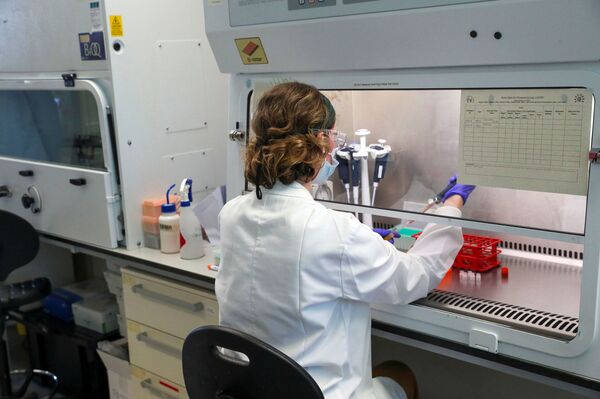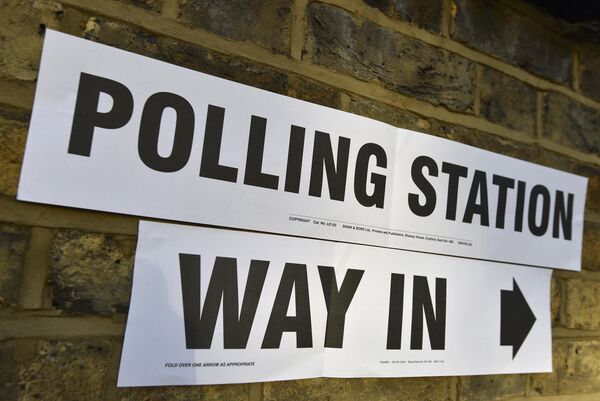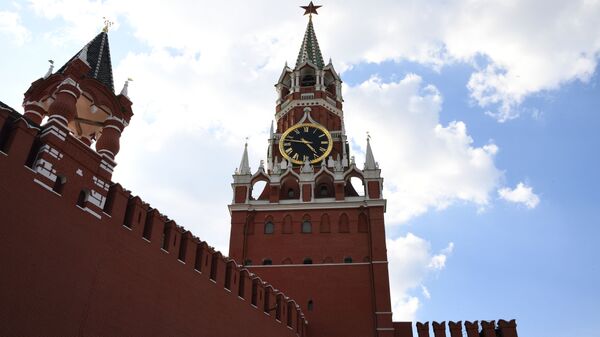The National Cyber Security Centre has not, however, provided information about which organisations had been targeted or whether any information had actually been stolen. This comes after claims of interference in the 2019 election and a confirmation that the long-delayed "Russian report" would be published next week.
Journalist and political commentator Ollie Richardson cast doubt on these bold claims from the UK Foreign Secretary.
Sputnik: How seriously should we take Dominic Raab's comments?
Richardson: I think these constant, so-called revelations are becoming very tiresome and beyond pathetic. The UK government is using a phrase, almost certain. That's very similar to the phrase that was used by Theresa May at the time of the alleged Skripal poisoning, she said, "highly likely". So it's a very similar expression. In the legal domain, that's not adequate enough proof. You need to present something tangible as proof and have something concrete. They haven't done that this time.
They haven't done it with their allegations of election interference from Russia's side and they haven't done it with the allegations of hacking with the UK's research into a coronavirus vaccine. In general, this is a booster injection of propaganda, or anti-Russian propaganda, to top up the previous one from a month or two ago. So really the UK government needs to keep this perpetual 'threat' alive.

Sputnik: Why do you think Raab made these statements now?
Richardson: It's not a coincidence that, in the last 24 hours in Russia, the Director of the National Research Centre for microbiology, he said in an interview with Russian state media, that Russia might register a coronavirus vaccine by the end of the summer, i.e.: Russia will be the first country in the world to have a vaccine for the coronavirus.
So, of course, the UK and, should we say, the Democrats in America, can't allow Russia to have such a success of a victory like that. So they have to use all sorts of dirty methods to discredit Russia's achievement here.
Like the cherry on the cake; traditional anti-Russian mainstream media in the UK is mobilising to cover the cracks in the narrative. We see an article in The Telegraph from yesterday titled 'Vladimir Putin has never stopped fighting the Cold War'.
In the very first paragraph of the article, it says, "Perhaps the only surprise about the latest revelations of Russian disinformation and hacking to affect the UK with reference to interference in the 2019 elections and attempts to sell COVID-19 vaccine research is that anyone should have been surprised at all".
So already, it's like legitimising something that has not been substantiated and is not proven. So casual laypeople who do not know so much about geopolitics or politics, who are just ordinary people, ordinary workers. They may read something like this and they're basically fed this narrative with no substantiation and they have perhaps no knowledge of the resources they consult. So they swallow this and then they may tell a friend "Oh, I read this article in The Telegraph and it says, This and That ". That's how it works, It's very sad.

Sputnik: Could the UK be using this as a smokescreen for their own failings with a coronavirus?
Richardson: Absolutely, I can say as someone who is living in Moscow, the way that the UK government has handled this pandemic. In Russia, people were not forced to wear masks. People could still go to the supermarket as usual. Social distancing was not forced on some people. I know from keeping in touch with relatives in the UK and reading the news, the UK is not like that.
The hospitals are already at maximum capacity with very, very limited funding. But when the pandemic came, the infrastructure buckled. In terms of the economy, the UK economy has already buckled a long time ago, even before the 2008 crisis. So they use the coronavirus as a smokescreen to mask that economic degradation.
A pundit with Sky News, called Ed Conway, said on the 15th of July, that the COVID-19 recession will feel far more intense than the aftermath of 2008. There is a lot of reason to say that the UK government is using this hacking fairytale and manipulating coronavirus to cover up deep systemic and systematic failures of policies and especially to keep this myth of the Russian threat alive and to keep it as a weapon.

